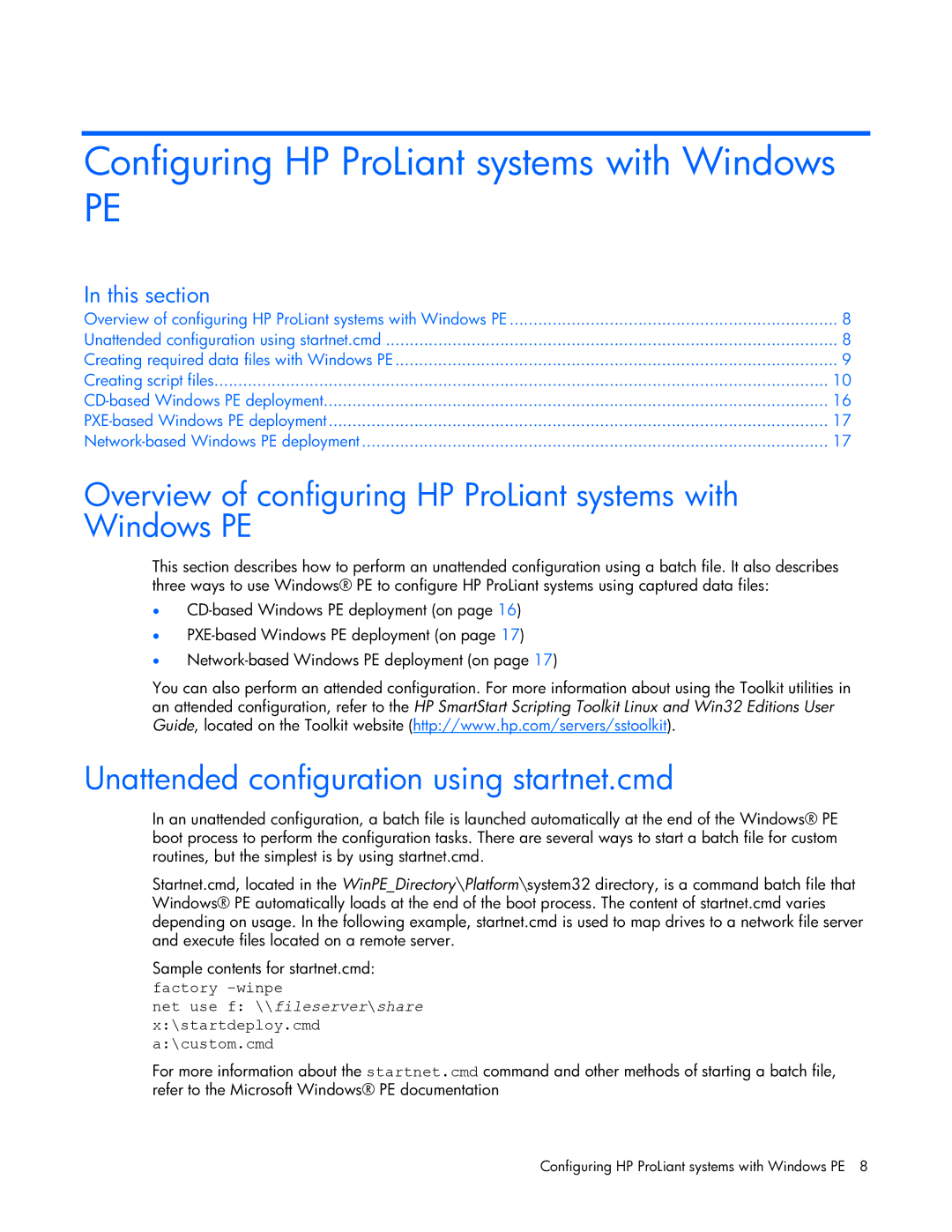Configuring HP ProLiant systems with Windows
PE
In this section |
|
Overview of configuring HP ProLiant systems with Windows PE | ..................................................................... 8 |
Unattended configuration using startnet.cmd | 8 |
Creating required data files with Windows PE | 9 |
Creating script files | 10 |
16 | |
17 | |
17 |
Overview of configuring HP ProLiant systems with Windows PE
This section describes how to perform an unattended configuration using a batch file. It also describes three ways to use Windows® PE to configure HP ProLiant systems using captured data files:
•
•
•
You can also perform an attended configuration. For more information about using the Toolkit utilities in an attended configuration, refer to the HP SmartStart Scripting Toolkit Linux and Win32 Editions User Guide, located on the Toolkit website (http://www.hp.com/servers/sstoolkit).
Unattended configuration using startnet.cmd
In an unattended configuration, a batch file is launched automatically at the end of the Windows® PE boot process to perform the configuration tasks. There are several ways to start a batch file for custom routines, but the simplest is by using startnet.cmd.
Startnet.cmd, located in the WinPE_Directory\Platform\system32 directory, is a command batch file that Windows® PE automatically loads at the end of the boot process. The content of startnet.cmd varies depending on usage. In the following example, startnet.cmd is used to map drives to a network file server and execute files located on a remote server.
Sample contents for startnet.cmd: factory
net use f: \\fileserver\share x:\startdeploy.cmd a:\custom.cmd
For more information about the startnet.cmd command and other methods of starting a batch file, refer to the Microsoft Windows® PE documentation
Configuring HP ProLiant systems with Windows PE 8
